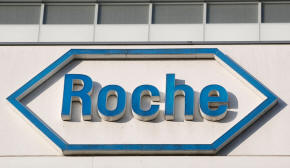Roche suffers setback with Alzheimer's treatment
 Send a link to a friend
Send a link to a friend
 [June 16, 2022]
ZURICH (Reuters) - Swiss drugmaker
Roche said on Thursday its Alzheimer's medicine crenezumab did not slow
or prevent cognitive decline in people with a specific genetic mutation
which causes early-onset of the disease, a study showed, in another blow
after a recent setback with cancer treatment tiragolumab. [June 16, 2022]
ZURICH (Reuters) - Swiss drugmaker
Roche said on Thursday its Alzheimer's medicine crenezumab did not slow
or prevent cognitive decline in people with a specific genetic mutation
which causes early-onset of the disease, a study showed, in another blow
after a recent setback with cancer treatment tiragolumab.
Crenezumab did not show a statistically significant clinical benefit in
either of its co-primary endpoints assessing the rate of change in
cognitive abilities or episodic memory function, the drugmaker said in a
statement.
The Alzheimer's Prevention Initiative (API) Autosomal Dominant
Alzheimer's Disease (ADAD) Colombia Trial was evaluating the potential
of crenezumab to slow or prevent Alzheimer's disease in cognitively
unimpaired people who carry a specific genetic mutation which causes an
early onset of the disease, Roche said.
The Basel-based firm had already suffered an important setback with an
experimental cancer drug last month.
[to top of second column]
|

The logo of Swiss drugmaker Roche is seen at its headquarters in
Basel, Switzerland January 30, 2020. REUTERS/Arnd Wiegmann/File
Photo
 In May, Roche said that an interim
analysis of an ongoing clinical trial showed that its experimental
drug, tiragolumab, failed to meaningfully slow disease progression
in newly diagnosed patients with advanced non-small-cell lung cancer
(NSCLC) in combination with its approved PD-L1 immunotherapy
Tecentriq, versus Tecentriq alone.
(Reporting by Silke Koltrowitz; Editing by Jacqueline Wong)
[© 2022 Thomson Reuters. All rights
reserved.] This material may not be published,
broadcast, rewritten or redistributed.
Thompson Reuters is solely responsible for this content. |